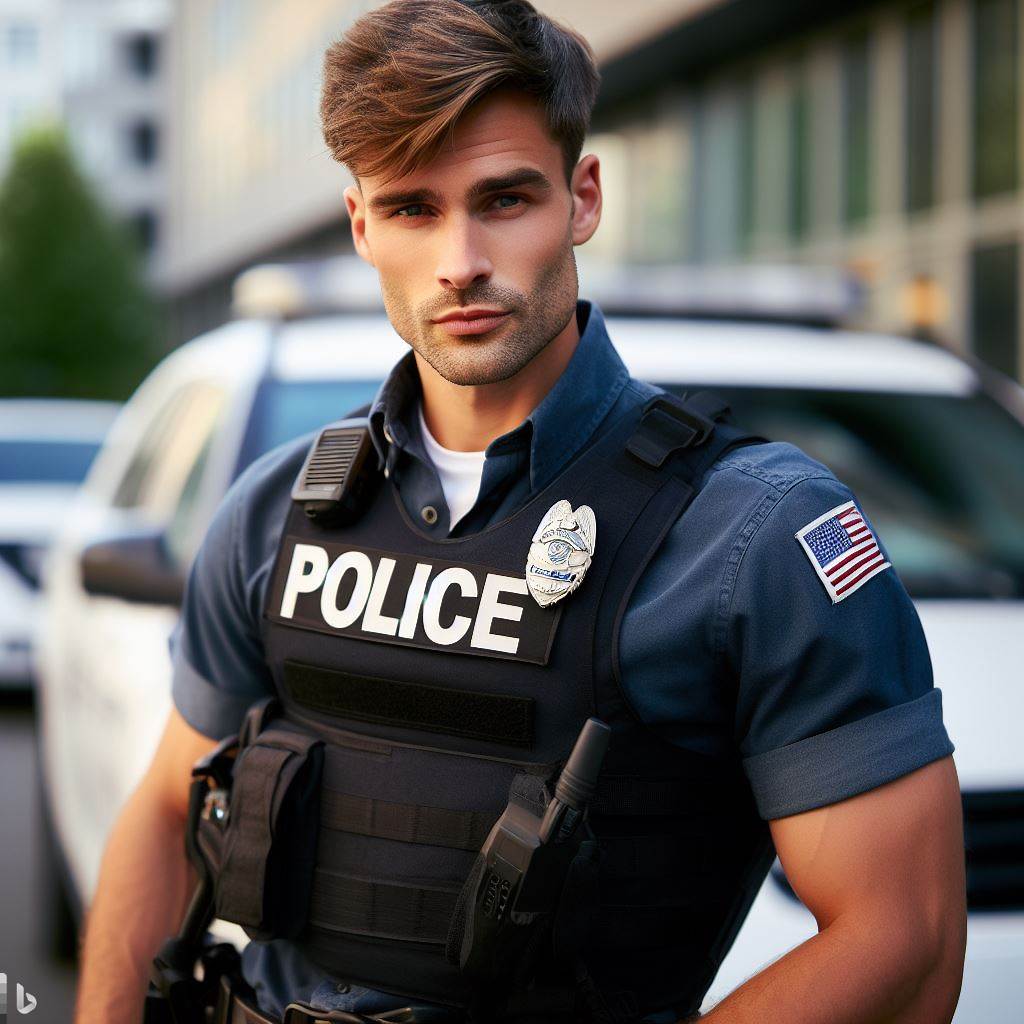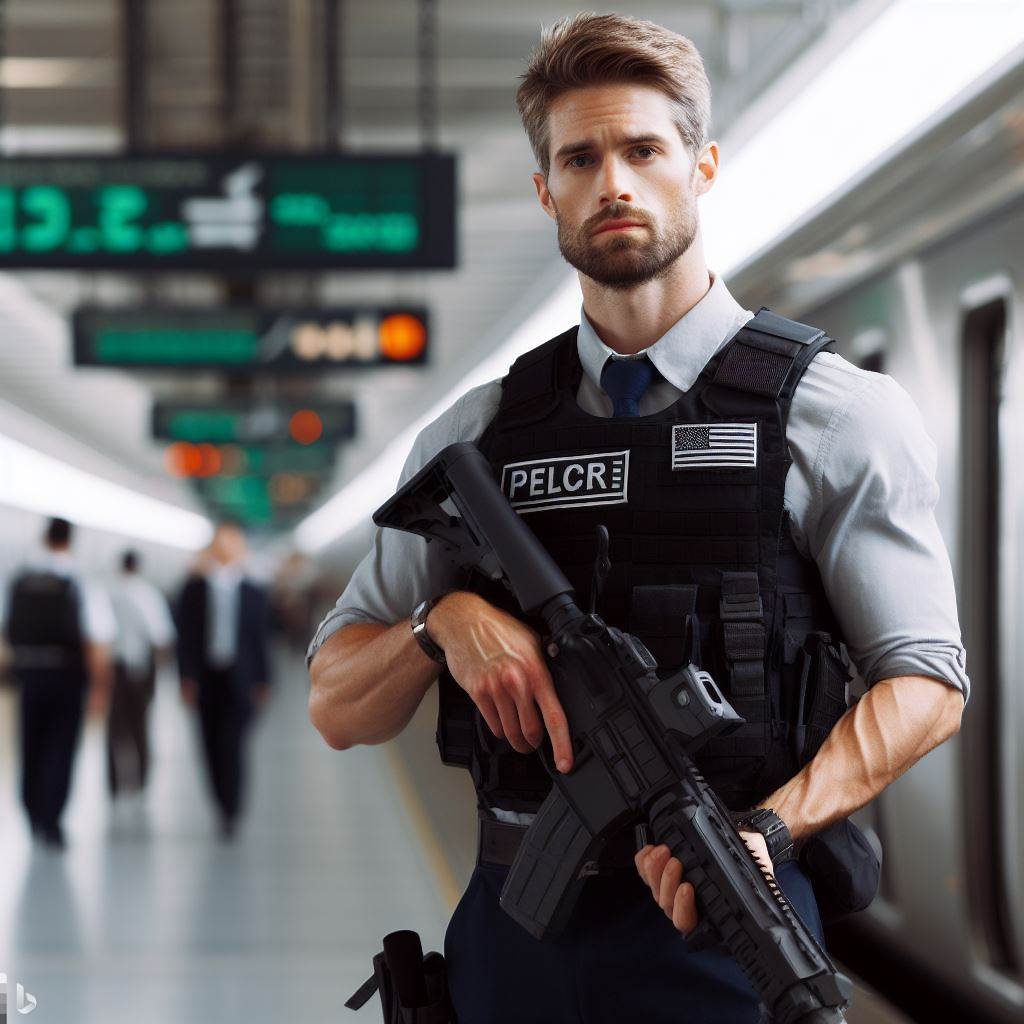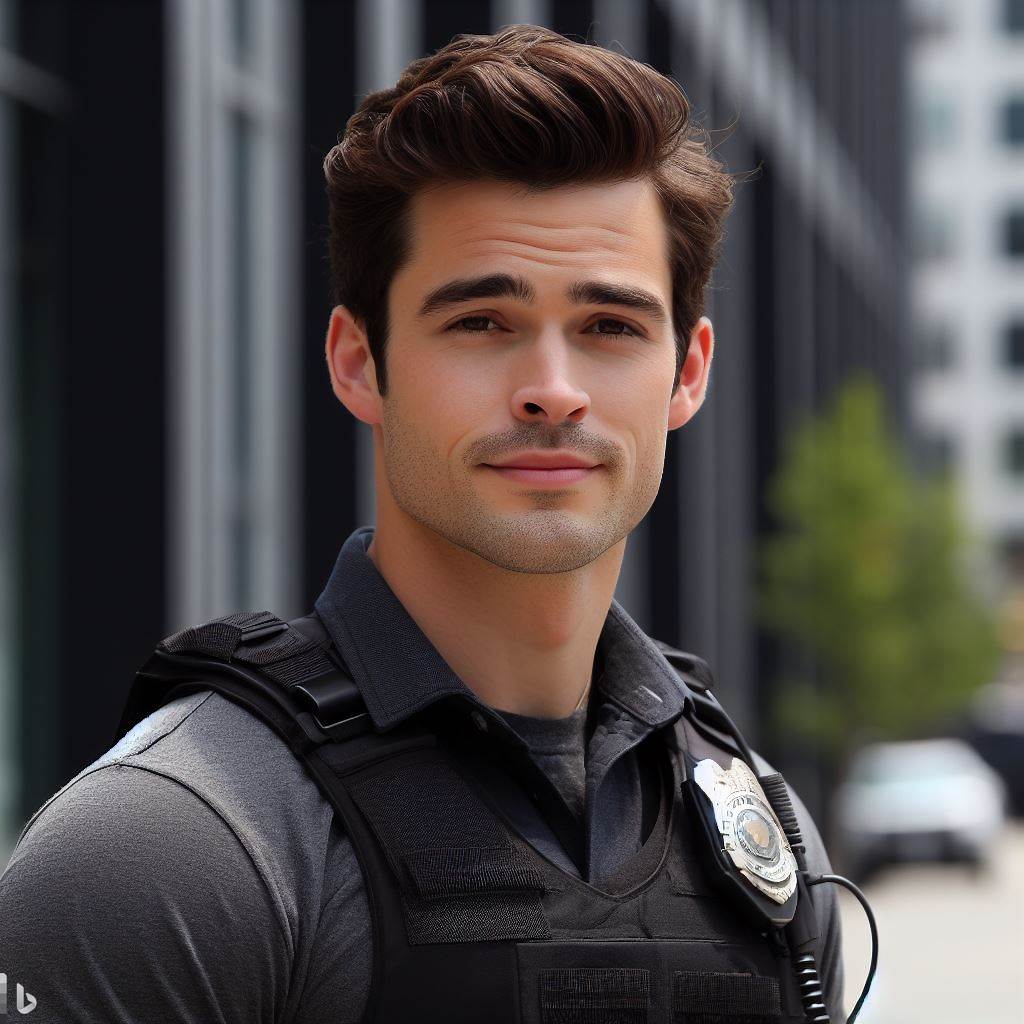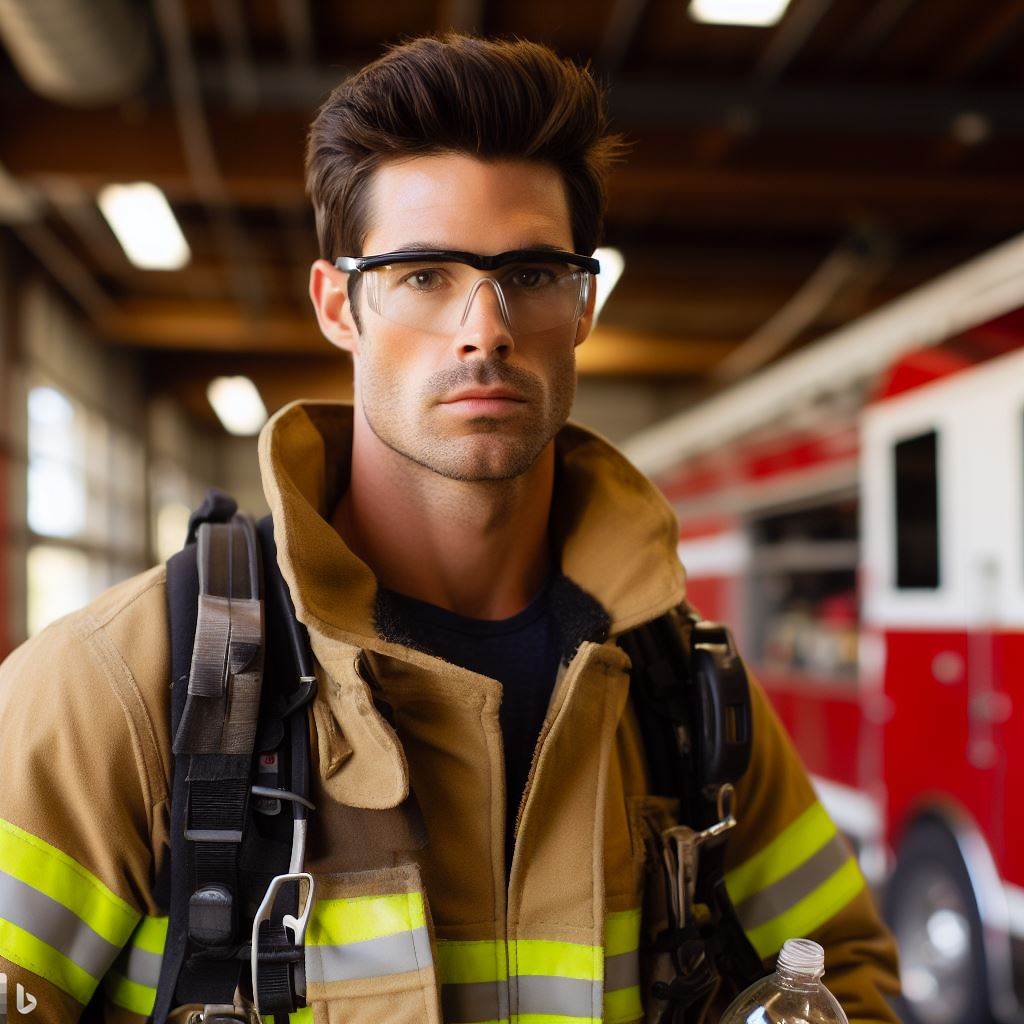Introduction
In the United States, specialized units play a crucial role in law enforcement. These units, ranging from K-9 to SWAT teams, possess unique skills and training that are essential in maintaining public safety.
Specialized units are vital for handling various scenarios and ensuring effective response to emergencies.
The Importance of Specialized Units in Law Enforcement in the USA
Specialized units are fundamental in addressing specific challenges that traditional law enforcement officers may not have the expertise or resources to handle.
K-9 units, for example, utilize highly trained dogs to assist in tracking suspects, detecting drugs, and locating missing persons.
These canine partners provide invaluable support to officers and enhance their investigative capabilities.
Similarly, SWAT teams are specialized units trained to handle high-risk situations such as hostage situations, armed standoffs, and terrorist threats.
Their extensive training in tactical operations and crisis negotiation enables them to respond effectively to these dangerous scenarios, ensuring the safety of civilians and law enforcement personnel.
Other specialized units, such as bomb squads and forensic teams, provide essential expertise in investigating and defusing explosive devices, as well as analyzing crime scenes for evidence.
These units are instrumental in solving complex cases and gathering vital information to bring perpetrators to justice.
The presence of specialized units instills a sense of security in communities, as they provide a rapid and specialized response to various emergencies.
Their advanced training, specialized equipment, and unique skill sets enable them to handle situations efficiently, minimizing risks and maximizing successful outcomes.
In addition, specialized units are essential components of law enforcement in the USA.
Their expertise, training, and specialized skills enable them to handle diverse situations effectively, ensuring public safety and peace of mind.
The synergy between specialized units and traditional law enforcement officers creates a comprehensive approach to tackling crime and emergencies in the United States.
K-9 Units
In law enforcement agencies across the United States, K-9 units play a critical role in maintaining public safety and upholding the law.
These specialized units consist of highly trained police dogs and their handlers, working together to perform a variety of tasks and duties.
Let’s delve into the world of K-9 units to understand their definition, role, history, training, and accomplishments.
Definition and Role of K-9 Units
K-9 units, also known as canine units, are specialized law enforcement teams comprising trained police dogs and their handlers.
These units assist police officers in a wide range of tasks, such as search and rescue operations, drug detection, bomb detection, suspect apprehension, crowd control, and tracking down criminals.
History and Evolution of K-9 Units in the USA
The use of police dogs in the United States dates back to the early 1900s. Initially, they were primarily employed for tracking and apprehending suspects.
However, their capabilities and roles expanded over time as their effectiveness became apparent. Today, K-9 units have become indispensable assets in law enforcement agencies nationwide.
Types of Tasks K-9 Units Are Trained For
K-9 units are trained for various tasks depending on the specific needs of each law enforcement agency. Some common areas of training include:
- Search and Rescue: K-9 units assist in locating missing persons, whether in wilderness areas or urban environments.
- Drug Detection: These trained dogs are adept at sniffing out illegal narcotics, enabling officers to discover hidden drugs even in the most concealed locations.
- Bomb Detection: K-9 units specialize in detecting explosives, providing crucial support in ensuring public safety during large-scale events or in potential threat situations.
- Tracking: Utilizing their exceptional scent-tracking abilities, K-9 units aid in locating suspects or individuals involved in criminal activities.
- Patrol and Apprehension: Some police dogs are trained in suspect apprehension techniques, helping officers safely detain individuals.
Training and Selection Process for K-9 Handlers and Their Canine Partners
Becoming a K-9 handler requires extensive training and dedication. Officers undergo specialized training courses that cover canine behavior, handling techniques, obedience training, and specific skills related to their unit’s area of focus.
The selection process is rigorous, ensuring that both the handler and the canine possess the required aptitude for the job.
Success Stories and Notable Cases Involving K-9 Units
Over the years, K-9 units have been instrumental in numerous success stories and notable cases in law enforcement history.
Their contributions have led to the apprehension of dangerous criminals, rescue of missing persons, and seizure of significant quantities of illegal narcotics.
Each success highlights the valuable role these units play in public safety and crime prevention.
In general, K-9 units are an integral part of law enforcement agencies in the United States.
Their highly trained police dogs and skilled handlers work together to perform a wide range of tasks, ensuring the safety and security of communities.
From search and rescue operations to drug detection, these specialized units continue to make significant contributions to the field of law enforcement.
Read: Top U.S. Military Bases: Key Locations & Their Importance
SWAT (Special Weapons and Tactics)
In the United States, SWAT (Special Weapons and Tactics) teams are specialized units that handle high-risk situations and perform tactical operations.
These teams are crucial in maintaining public safety and dealing with critical incidents.
Overview of SWAT teams and their purpose
SWAT teams are elite law enforcement units composed of highly-trained officers.
Their primary purpose is to respond to situations that require specialized skills and equipment beyond the capabilities of regular police forces.
History and development of SWAT teams in the USA
The concept of SWAT teams originated in the 1960s as a response to increasing violent incidents, such as riots and armed standoffs.
The Los Angeles Police Department established the first official SWAT team in 1968.
Types of situations where SWAT teams are deployed
SWAT teams are typically deployed in scenarios involving hostage situations, barricaded subjects, active shooters, high-risk arrests, and executing search warrants in dangerous environments.
Training and selection process for SWAT team members
Becoming a member of a SWAT team requires extensive training and rigorous selection processes.
Officers must possess exceptional marksmanship, physical fitness, and the ability to make split-second decisions under extreme pressure.
Equipment and weaponry used by SWAT teams
SWAT teams are equipped with specialized gear and weaponry to handle high-risk situations.
This includes armored vehicles, breaching tools, tactical firearms, non-lethal weapons, and various communication and surveillance equipment.
Transform Your Career Today
Unlock a personalized career strategy that drives real results. Get tailored advice and a roadmap designed just for you.
Start NowCriticisms and controversies surrounding SWAT teams
While SWAT teams are essential in protecting public safety, they have faced criticisms and controversies.
Some argue that their militarized appearance and tactics can escalate situations, leading to unnecessary violence and civil rights concerns.
Examples of successful operations conducted by SWAT teams
Despite controversies, SWAT teams have a track record of successfully resolving dangerous situations.
Notable operations include hostage rescues, neutralizing active shooters, and apprehending heavily armed criminals.
SWAT teams play a vital role in law enforcement by employing specialized skills and equipment to handle high-risk situations.
While criticisms exist, their successes demonstrate the importance of having highly-trained units ready to respond to critical incidents and protect the public.
Read: The Training Rigor: Preparing for Combat & Peacekeeping
Explore Further: Technological Tools Revolutionizing Detective Work in the US
Bomb Squad
Bomb squads and their role in law enforcement
- Bomb squads play a crucial role in law enforcement by responding to and diffusing explosive devices.
- These specialized units are trained to handle various types of incidents involving explosives.
- Their primary objective is to protect the public safety and minimize the risk of casualties.
- Bomb squads often collaborate with other law enforcement agencies and bomb experts to ensure a successful operation.
History and evolution of bomb squads in the USA
- The concept of bomb squads originated during World War II when military personnel were trained to handle bomb threats.
- After the war, these specialized units transitioned into civilian law enforcement agencies.
- Over time, bomb squads have evolved and adapted to new threats and technological advancements.
- Today, they are an integral part of law enforcement agencies across the country.
Types of incidents bomb squads respond to
- Bombings: Bomb squads are primarily called in to investigate and neutralize explosive devices used in intentional bombings.
- Suspicious packages: They also deal with suspicious packages or objects that may potentially contain explosive materials.
- Threats: Bomb squads assess and handle bomb threats to ensure public safety and create a sense of security.
Process of investigating and diffusing explosive devices
- Upon receiving a report regarding a potential explosive device, bomb squads follow strict protocols to secure the area.
- Specialized bomb technicians use their skills and training to assess the threat and determine the best course of action.
- They employ various tools and techniques to investigate and render safe explosive devices.
- This process requires meticulous attention to detail and precision to ensure the safety of all involved.
Protective gear and equipment utilized by bomb squad technicians
- Bomb squad technicians wear specialized protective clothing, including bomb suits, helmets, and gloves.
- These suits are designed to provide protection against explosions, shrapnel, and other hazardous materials.
- Bomb squads utilize advanced equipment such as X-ray machines and bomb disposal robots.
- These tools assist in safely examining and defusing explosive devices from a remote location.
Notable cases involving bomb squads
- Oklahoma City bombing: The bomb squad played a significant role in the investigation and cleanup of the devastating 1995 bombing.
- Centennial Olympic Park bombing: Bomb squad units responded to the explosion during the 1996 Summer Olympics in Atlanta.
- Boston Marathon bombing: Bomb squads were involved in the response and investigation of the 2013 bombing.
These cases highlight the crucial work of bomb squads in ensuring public safety and capturing perpetrators.
Generally, bomb squads are highly specialized units within law enforcement that are trained to handle explosive devices and protect public safety.
Their history, evolving techniques, and notable cases exemplify their importance in combating terrorism and ensuring the security of the community.
Read: Women in the U.S. Military: Breaking Barriers & Traditions
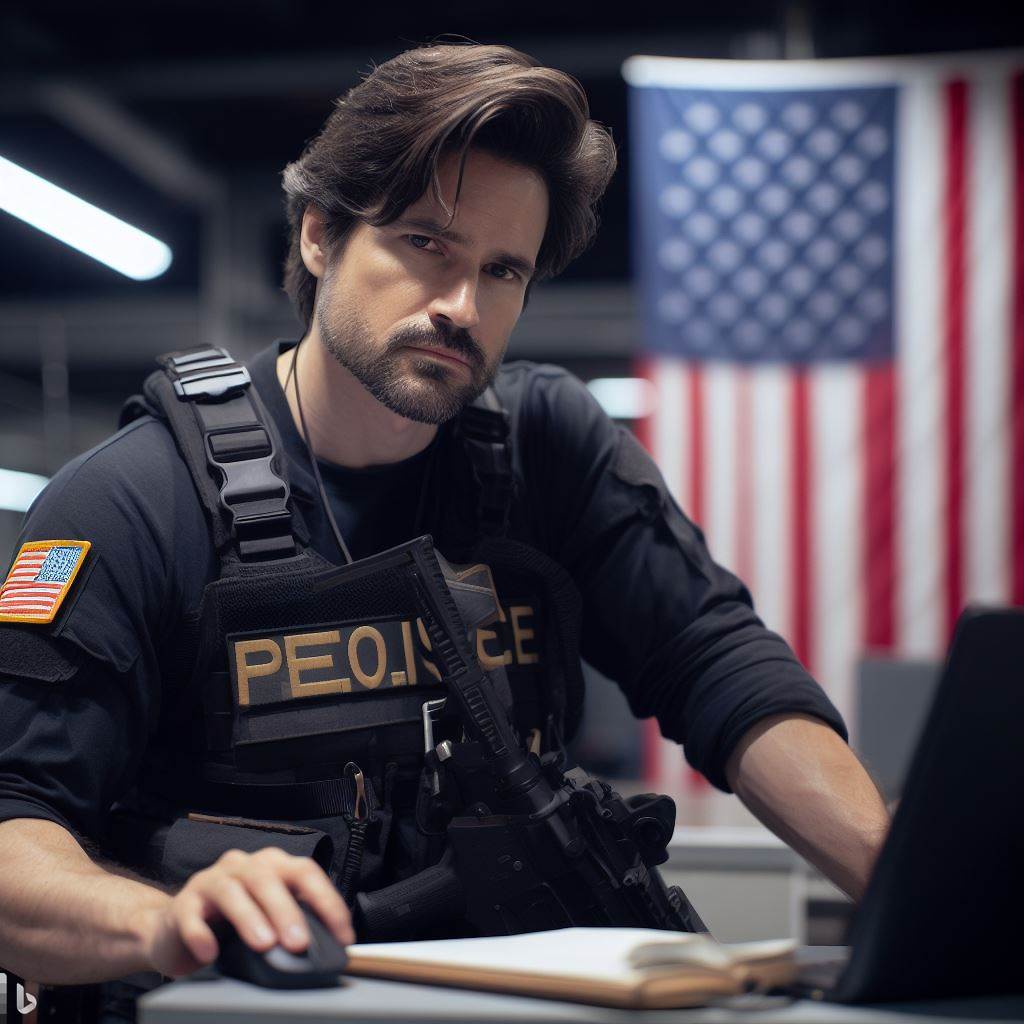
Crisis Negotiation
Crisis negotiation units and their purpose
Specialized crisis negotiation units within law enforcement agencies handle high-stress situations, like hostage takings or barricaded subjects, effectively addressing crises.
The purpose of these units is to establish communication with the individuals involved in the crisis and de-escalate the situation peacefully, ensuring the safety of all parties.
History and significance of crisis negotiation in law enforcement
- Crisis negotiation in law enforcement originated in the 1970s as a response to the growing need for trained individuals who could effectively communicate with offenders in high-stakes situations.
- Law enforcement relied on tactics such as force or military-style intervention, often resulting in violence and loss of life.
- The significance of crisis negotiation lies in its ability to resolve volatile situations without resorting to lethal force, thus protecting both the public and law enforcement personnel.
Skills and techniques used by crisis negotiators
- Active listening: Negotiators attentively listen to the concerns and demands of the individuals, building rapport and trust.
- Empathy and compassion: Demonstrating understanding and showing empathy towards the emotional state and grievances of the person in crisis.
- Effective communication: Using clear and concise language, negotiators establish a dialogue and maintain open lines of communication.
- Problem-solving: Identifying the underlying issues and working towards finding mutually agreeable solutions.
- Patience and persistence: Negotiators understand that crisis situations take time to resolve and remain committed to a peaceful resolution.
Examples of successful negotiations and hostage situations defused by crisis negotiators
During the 1993 Waco Siege, crisis negotiators attempted to peacefully resolve the standoff between a religious cult and law enforcement.
Despite the tragic outcome, negotiations played a crucial role in maintaining communication.
In 2000, crisis negotiators successfully resolved a hostage situation at the Discovery Channel headquarters, where a man had taken several employees hostage.
Through negotiation, all hostages were released unharmed.
Challenges and ethical considerations surrounding crisis negotiations
- Time constraints: Negotiations may be prolonged and require detailed attention, which can be challenging in rapidly evolving crisis situations.
- The risk of manipulation: Negotiators must maintain objectivity and be aware of potential manipulation by individuals in order to safeguard the integrity of negotiations.
- Balancing the use of force: Negotiators must collaborate with tactical teams to ensure the safety of hostages while avoiding undue harm to the individuals in crisis.
- Ethical concerns: Negotiators face challenging ethical dilemmas, such as determining whether to negotiate with terrorists or individuals with violent intentions.
In review, crisis negotiation units play a vital role in law enforcement by utilizing specialized skills and techniques to peacefully resolve high-stress situations.
Through effective communication and empathy, these units aim to de-escalate crises and protect the safety of all parties involved while navigating complex ethical considerations.
Read: Military Technology: Tools of the Modern American Soldier
Conclusion
Specialized units play a crucial role in law enforcement, ensuring public safety and maintaining order. Their importance and diversity cannot be overstated.
These units, such as K-9 and SWAT, possess a level of dedication and expertise that is unparalleled. The professionals in these units undergo rigorous training to handle specific tasks and situations.
Their unwavering commitment to serving and protecting the community is commendable.
Specialized units in maintaining public safety in the USA
The role of specialized units in law enforcement cannot be overlooked. They provide essential support in various areas, ranging from tracking down suspects to responding to high-risk situations.
Specialized units possess unique skills and equipment that allow them to handle complex scenarios effectively. They bring a level of efficiency to operations that is paramount in maintaining law and order.
The diversity within specialized units is another significant aspect to highlight. From canine units to SWAT teams, each unit serves a specific purpose, contributing to the overall efficiency of law enforcement agencies.
This diversity enables law enforcement to tackle a wide range of situations with precision and expertise.
In the end, the importance of specialized units in law enforcement cannot be emphasized enough. Their dedication and expertise are essential in ensuring the safety of the public.
The professionals in these units deserve our utmost appreciation for their unwavering commitment to serving and protecting the community.
The role of specialized units in maintaining public safety in the USA is undoubtedly invaluable.
[E-Books for Sale]
The Big Book of 500 High-Paying Jobs in America: Unlock Your Earning Potential
$19.99 • 500 High-Paying Jobs • 330 pages
Explore 500 high-paying jobs in America and learn how to boost your career, earn more, and achieve success!
See All 500 High-Paying Jobs of this E-Book
1001 Professions Without a Degree: High-Paying American Jobs You Can Start Now
$19.99 • 1001 Professions Without a Degree • 174 pages
Discover 1001 high-paying jobs without a degree! Unlock career tips, skills, and success strategies for just $19.99!

